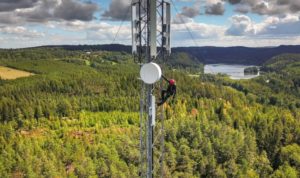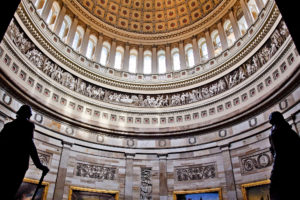Preventing Payola in the Music Industry
Scholars discuss the practice of payola in the music industry and reforms to promote fairness for artists.
FCC’s New Rule Protects Domestic Violence Survivors’ Cell Phone Access
FCC says a cell phone can be an abuser’s tool of control or a survivor’s lifeline.
Should Big Tech Pay for the Use of Telecom Networks?
EU regulators are considering whether to require major technology firms to pay to use telecom networks.
Virtual Hearings in Agency Adjudication
ACUS assesses the changing landscape of how agencies use new technologies to hold hearings.
Can Municipal Broadband Networks Close the Digital Divide?
Local governments may be able to provide better internet access than telecom companies.
The Future of Working from Home
Experts address regulatory implications of the transition to remote work.
Networks Owners Rise to the Occasion Even in a Pandemic
Private telecom and transport networks have delivered socially valuable outcomes during the COVID-19 pandemic.
The Ongoing Saga of Chevron and Net Neutrality
The FCC’s position on internet access will continue to change unless Congress passes clear legislation.
Reforming the FCC’s Captioned Telephone Service Program
The FCC ought to consider new approaches to setting rates for captioned telephone service providers.
Correcting a Persistent Myth About the Law that Created the Internet
Scholar argues that section 230 of the Communications Decency Act applies to internet platforms regardless of their “neutrality.”
Adopting Rebuttable Presumptions at the FCC
Deregulatory rebuttable presumptions would help advance the goals of the Telecommunications Act.
Marketcraft and the Digital Economy
Information technology has disrupted regulatory regimes and recast policy debates.












